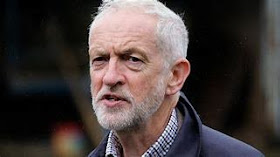Jeremy Corbyn Independent Member for Islington
North participated in the Parliamentary Emergency Debate in the House of
Commons on Afghanistan on 18 August 2021
Jeremy Corbyn an Independent Member for Islington North said on Afghanistan, “In this sombre and very serious debate, there are two fundamental points I want to make. First, we have all been inundated overnight and in the past couple of days with emails from constituents and many others who are very worried about the plight of those who are trying to get out of Afghanistan, the numbers of people who ought to be supported and the approach that the British Government have taken. Members will have seen letters from the National Union of Journalists concerning journalists and their safety, from the University College Union concerning their students in this country and their fears, and from many, many others, including people representing trade unions in Afghanistan.”
Jeremy Corbyn MP said, “As well as that, I ask the Government clearly
what their strategy is for allowing people to come to this country, because it
is clear that all those who have worked for the British Army or any other
organisation in Afghanistan should be allowed to come here. That is the case,
likewise, for non-governmental organisations, but I would add to that those who
have worked for contractors that have been contracted to the British or
American services. They will be just as vulnerable in the future.”
He mentioned, “Too many of us represent constituencies where refugees
who do not have enough support are living. They are begging, homeless and
street-sleeping while their applications are endlessly processed. That is not
the sign of a society or a Government who are holding out a hand of friendship
towards refuges.”
Mentioning about the longer term history of Afghanistan, Jeremy Corbyn
said, “Any examination of the longer-term history of Afghanistan will show that
wars there fail. There were three in the 19th century and a number later. The
great game of the 19th century was about preventing Russia from getting control
of Afghanistan. Later, the cold war took over and the Americans supported the
opposition to the Soviet Union, thus forming the mujaheddin, which morphed into
the Taliban and so much else. There are some serious historical lessons to be
learned about how we take major foreign policy decisions. It is beyond
disappointing that the Prime Minister’s response this morning appeared to be
that he is not prepared to countenance a serious inquiry into all this.”
He concluded, “I can hear my friend,
the late Paul Flynn, speaking about the number of soldiers who died in Helmand.
I can hear all those who spoke up against the intervention, not because they
supported the Taliban and not because they were not serious about human rights,
but because they were serious about a long-term peace in a world that
recognises the historical position that we have got ourselves into. Now surely
is the time for a sober reflection on the disaster that has happened in
Afghanistan.”



No comments:
Post a Comment